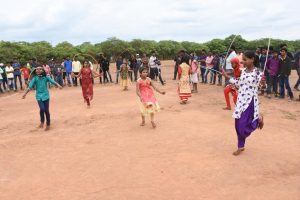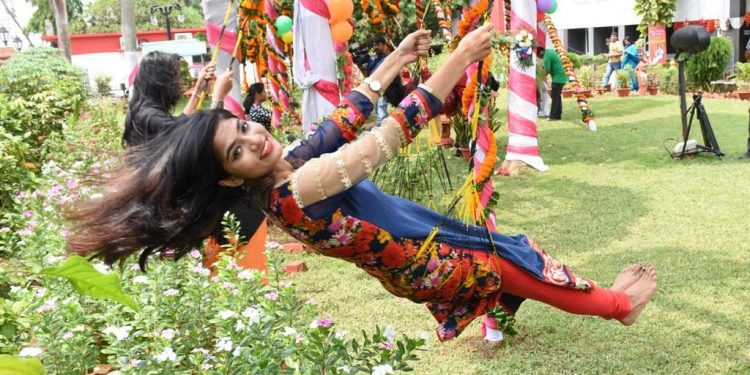Bhubaneswar: Raja, the unique festival that celebrates womanhood, is among the most popular festivals in Odisha. While women eagerly await and plan well in advance to enjoy the three-day break this festival allows them from domestic chores, this year it is going to be different in view of COVID-19 outbreak, lockdown and social distancing requirements.
In a stark departure from previous years, Raja will be celebrated inside homes this year. That said, many organisations have come forward to ensure that the festival doesn’t lose its shine entirely.
With the state government closing all markets, parks, tourist spots in a bid to discourage public congregation, Odisha Tourism Development Corporation (OTDC) has decided to celebrate virtual Raja.
Instead of traditional swings and Odia delicacies in outdoor locations, the company has decided to launch home delivery of various traditional Odia cakes and sweets such as poda pitha, chhena poda, chuchipatra pitha and several others through ‘Pitha on Wheel’ programme.

Amid the shutdown on ‘Pahili Raja’ scheduled to be held Sunday OTDC has decided to home deliver the cakes and sweet items within an area of 3 to 5-kilometre radius of its ‘Panthaniwas’ campuses located in Bhubaneswar, Cuttack, Sambalpur and Rourkela. Besides, between Monday and Wednesday, OTDC will home deliver the traditional delicacies at all locations of Bhubaneswar. Denizens can order home delivery of traditional cakes and sweets from OTDC by calling in the numbers like 9078885516, 9438243579 and 9437115437.
Food delivery aggregators such as Zomato and Swiggy have also braced themselves up to deliver of ‘Raja Pana’ at the doorsteps of people in twin city. Customers can order ‘Rawadi Pan’, ‘Mukhwas Barfi Pan’, ‘Mitha Cheri Pan’, ‘Mitha pan’, ‘Keshar pan’, ‘Dilkhus’, ‘Dilwale pan’, and ‘Odisha Raja Pan’ through Zomato and Swiggy. On the other hand, Uphar.com will also provide imported pans from Kolkata and Bangalore to the people of Bhubaneswar and Cuttack at their doorsteps.

Several institutions and organisations that had been arranging ‘Raja Mohatsava’ and ‘Raja Doli’ (swing) every year have come forward to arrange various online competitions.
All you wanted to know about Raja:
Each day of three days of this festival has its own name and significance. The first day is called Pahili Raja, the second day is Raja Sankranti, which signifies the beginning of the solar month of Mithuna i.e. the rainy season; the third day is Bhu Daaha or Basi Raja and the fourth day is called Vasumati Snana.
It is believed that the Goddess Earth or the divine wife of Lord Vishnu undergoes menstruation during the first three days. The fourth day is called Vasumati Snana, or ceremonial bath of Bhudevi (Goddess Earth).
The term Raja has been derived from ‘Rajaswala’ which means menstruating woman. In medieval times the festival became more popular as an agricultural holiday marking the worship of Bhudevi. A silver idol of Bhudevi can still be found in the Puri Jagannath temple.
The day before the first day is called ‘Sajabaja’ (preparatory day) during which the houses, kitchens including grinding stones are cleaned and spices are made for the next three days. During these three days, women and girls take a break from household work and wear new clothes, ornaments and dress up while males do the household chores.
A special draw of the festival is traditional swings wherein long ropes are tied to banyan and other large trees and groups of women swing around while singing folk songs.
While this festival is primarily focused on women, men also take part in outdoor traditional sports – most favourite of them being kabaddi. Many young men and women often come together to play ludo and cards.

According to popular belief, as women menstruate — which is a sign of fertility — so also Mother Earth menstruates. This three-day long festival is considered to be the menstruation period of Mother Earth before the agriculture period begins. Quite like Hindu women taking a break from work during menstruation, Mother Earth is given full rest for three days during which all agricultural operations are stopped.






































